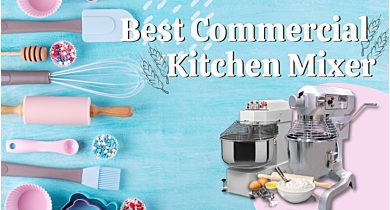Whether you're outfitting a new commercial kitchen or upgrading your cookware, the materials you choose play a pivotal role in your cooking experience. Stainless steel and aluminum are two popular choices, each with unique advantages and considerations. In this post, we’ll compare these materials so you can choose the option that aligns best with your cooking style, preferences, and priorities.
Stainless Steel Cookware
Stainless steel pots and pans are prized for their durability, non-reactive nature, and versatility in the kitchen, offering resistance to rust, stains, and corrosion for easy maintenance.
Advantages of Stainless Steel
- Corrosion resistance: Stainless steel cookware withstands corrosion, ensuring its longevity even with frequent use and exposure to various cooking ingredients.
- Fire and heat resistance: Able to endure high temperatures without warping or deteriorating, making it suitable for various cooking methods, including oven and stovetop use.
- Enhanced hygiene: Easy-to-clean surfaces maintain cleanliness, reducing the risk of bacteria buildup and ensuring safe food preparation.
- Impact resistance: Stainless steel's robust construction makes it resistant to dents and dings, prolonging its aesthetic appeal and functionality.
Drawbacks of Stainless Steel
Stainless steel cookware has some drawbacks, including the fact that it can be relatively heavy and may require seasoning to prevent food from sticking. Additionally, stainless steel cookware tends to be more expensive than other materials, impacting affordability for some.
Best Uses for Stainless Steel Cookware
Stainless steel cookware is ideal for boiling, sautéing, and baking, especially in small batches. Since it’s very efficient at retaining heat and cooking evenly, any dishes prepared in stainless steel will be cooked evenly to ensure a quality final product.
Aluminum Cookware
Aluminum pots and pans boast superb heat conduction, lightweight construction, and affordability, making them a popular choice for many commercial kitchens.
Advantages of Aluminum
- Efficient heat conduction: Aluminum cookware heats up and cools down rapidly, ensuring even heat distribution for consistent cooking results.
- Lightweight: Aluminum cookware is lighter than other materials, making it easier to handle and maneuver in the kitchen.
- Affordability: Aluminum cookware is cost-effective, offering quality cooking performance at a reasonable price point.
- Versatility: Compatible with various cooking methods and stovetops, aluminum cookware provides flexibility and convenience for diverse culinary needs.
Drawbacks of Aluminum
Aluminum cookware has drawbacks, including reactivity with acidic or alkaline foods, potentially altering flavors. It can warp under high heat and may scratch or dent easily. Additionally, it's unsuitable for induction cooktops and may require frequent replacement due to wear and tear.
Best Uses for Aluminum Cookware
As a versatile and efficient conductor of heat, aluminum cookware is suitable for a wide range of cooking methods. It’s useful for browning meat, sautéing, whisking sauces, frying, glazing, and searing.

Making Your Choice
Consider Your Cooking Style
When considering your cooking style, you’ll also want to think about menu items. Stainless steel's superior heat retention and even distribution make it ideal for dishes requiring precise temperature control, such as sauces, braises, and delicate seafood. In contrast, aluminum cookware's quick heat responsiveness and lightweight design are advantageous for dishes that require rapid temperature changes or frequent stirring, such as stir-fries, sautés, and quick sears. Assessing your menu's cooking techniques and requirements will help determine which type of cookware best suits your culinary needs and enhances the quality of your dishes.
Personal Preferences and Priorities
In restaurant settings, personal preferences and priorities play a crucial role in selecting cookware. Factors such as durability, ease of maintenance, and cost-effectiveness are vital considerations. Stainless steel, with its durability and resistance to corrosion, might be preferred for its long-term reliability and professional appearance. On the other hand, the affordability and lightweight nature of aluminum cookware may appeal to establishments aiming to balance quality with budget constraints, especially in high-volume kitchens.
Ready to start browsing options or looking for more personalized advice? Contact Zanduco today to find your new set of commercial pots and pans.






